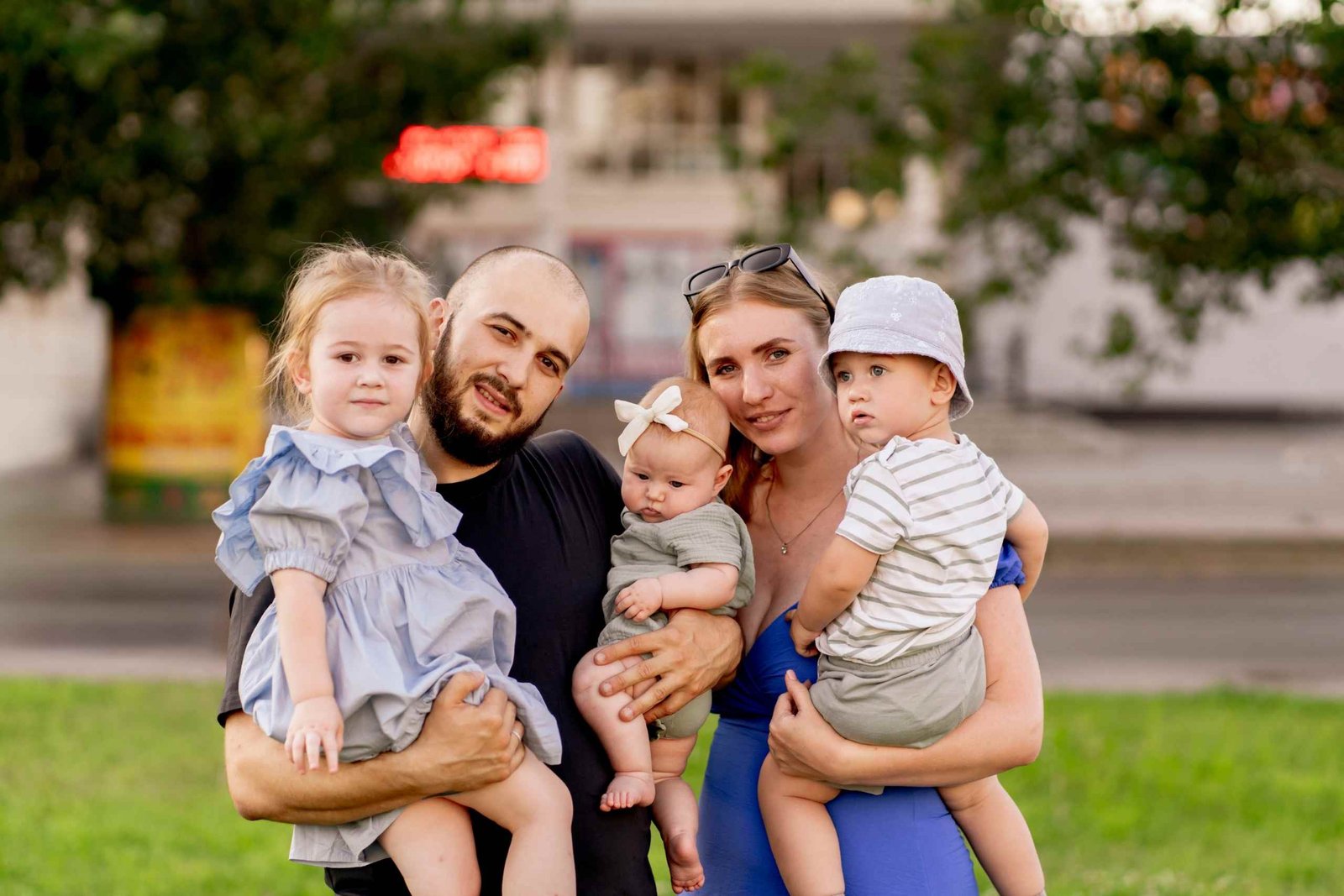Role of Marriage Counseling in Strengthening Family Bonds

Does it ever feel like the tension between you and your partner is quietly setting the tone for the entire household? You’re not imagining it. When the connection between two partners starts to fray—even slightly—it can ripple through the family in ways that aren’t always obvious. In today’s fast-paced world, even planning something joyful—like a wedding—can come with unexpected pressure.
Between guest lists, venues, and hiring the right wedding bartenders , stress can quietly build and carry over into married life. In case you didn’t know, there’s research from a journal published by Cambridge University Press that shows that children exposed to chronic conflict between parents are more likely to struggle with anxiety, behavioral issues, and emotional insecurity.
It’s a reminder that family health doesn’t start with picture-perfect routines or strict parenting strategies. It definitely starts with the relationship at the center of it all.
But here’s the thing: even the strongest relationships go through rough patches.
Life gets busy. Stress builds up. Communication slips into autopilot.
What Matters is How We Respond When that Connection Begins to Fade.
That’s where marriage counseling comes in—not just as a way to “fix” problems, but as a way to tune back into each other and solidify the foundation you’ve built. maIt helps couples align not only as partners, but as co-parents, decision-makers, and emotional anchors for the family.
If you’re looking for guidance that’s both expert-led and grounded in real relationship challenges, platforms like “Marriage.com” offer insights, tools, and practical advice to help couples reconnect—not just for themselves, but for the people they love most.
The Hidden Strain: How Relationship Issues Impact the Whole Family
Most couples don’t set out to let their relationship struggles affect the rest of the family, but it can happen in ways that are subtle and unintentional on the surface.
Emotional distance, unresolved tension, or even passive conflict between partners can quietly shift the tone of the entire home.
And you know what they look like? Shorter conversations, more screen time and silence, or moments of frustration that seem to come out of nowhere.
Children, especially, tend to absorb this tension even if nothing is said out loud.
And it doesn’t have to be shouting or drama—sometimes, it’s just the absence of warmth that sends the message.
How Marriage Counseling Supports the Entire Family System
Addressing such tension isn’t just about “fixing the marriage”. It’s more about restoring emotional balance across the family.
A strong, supportive partnership becomes the anchor that gives both children and adults a greater sense of safety, clarity, and emotional stability.
One of the most practical marriage counseling benefits is helping couples become aware of their patterns—how they talk, how they respond to issues, and how they meet or try to meet each other’s emotional needs.
With more couples now turning to marriage counseling online, support is more accessible and flexible than ever. This option has made it easier for busy families to get help without disrupting their routines.
In many cases, therapists use family therapy activities that promote connection and trust-building within the home. These tools help couples and families grow stronger together—through small, consistent changes that make a lasting difference.
Marriage counseling can help couples:
- Improve channels of communication and reduce reactive conflict
- Heal past emotional wounds and rebuild trust
- Realign their roles as partners and co-parents
- Access support conveniently through online sessions
- Strengthen the family unit through guided therapy activities
That’s why taking time to invest in the relationship, even through small daily actions or regular check-ins, can make a significant difference. Resources like Marriage Fitness focus on exactly that—building relationship health through consistent effort, empathy, and communication, rather than waiting until there’s a crisis to act.
How Marriage Counseling Helps Strengthen Family Relationships
Marriage is at the heart of the family unit, and when that relationship is nurtured, the entire family benefits. Besides focusing on the couple’s romantic connection, parenting and marriage counseling address how that relationship influences everything from communication styles to co-parenting strategies and emotional stability within the home.
A strong marriage creates the foundation for strengthening family relationships, especially during the phases that tend to bring the most pressure: raising young children, navigating teenage years, or caring for aging parents. These seasons of life can place strain on even the healthiest relationships, which is why couples therapy for parents becomes particularly valuable during these high-stress periods. Therapy helps parents work as a team, reducing miscommunication, minimizing resentment, and creating a more unified approach to family challenges.
Here are a few prime benefits of marriage counseling when it comes to family well-being:
- Improved communication and conflict resolution: Couples learn to listen actively, express themselves more clearly, and handle disagreements with less emotional reactivity—skills that filter down to children and other family dynamics.
- Aligned parenting strategies: Counseling helps partners get on the same page about discipline, routines, and boundaries, which leads to more consistent and secure environments for kids.
- Deeper emotional connection between spouses: By encouraging open emotional expression, counseling nurtures mutual support—something that’s often lost in the chaos of daily family life.
An effective approach in this area is Emotionally Focused Therapy for couples, which helps partners identify and work through emotional blocks. This method is particularly useful for parents who feel disconnected but still want to rework their bond.
For families juggling full schedules or living in different locations, marriage counseling online is a practical and powerful alternative. Online sessions allow couples to access professional support in a more flexible, private setting—helping them stay committed to the process and navigate even sensitive discussions like including a step mother name on marriage certificate when addressing complex family dynamics.
If you’re exploring the idea of counseling to reconnect or rebuild with your partner, Marriage.com offers a wealth of therapy-related resources designed to support couples through every stage of their journey—from early concerns to long-term relationship growth.
What to Expect from Marriage or Family Counseling Sessions
If you’ve never been to a counseling session before, it’s may feel a little unsure about the whole process. But the truth is, marriage or family counseling isn’t just sitting in a room and being judged. It aims to create a space where both partners (and sometimes family members) can feel heard, supported. The intent is to feel guided through challenges with the help of a neutral professional.
The First Session: Setting the Stage
During your first session, the focus is usually on getting to know you as a couple—understanding your history, your goals, and what brought you to counseling in the first place.
The therapist will ask questions to better understand your communication patterns, emotional dynamics, and family structure. This session is also when ground rules are set: confidentiality is emphasized, and both partners are assured that this is a safe, judgment-free space to speak openly.
Short-term or long-term? Setting realistic expectations
Some couples come in with a specific problem they want help resolving—like rebuilding trust after a conflict, or navigating a major life transition.
Others are looking for deeper work that requires time and consistent effort. It’s important to understand that there’s no one-size-fits-all solution. Some couples benefit from just a few sessions, while others might need a longer-term plan to fully reconnect and heal.
The Role of Openness and Commitment
For counseling to be effective, both partners need to be emotionally present. That doesn’t mean showing up perfect—it means being willing to listen, reflect, and engage in honest conversation.
Even if one partner feels more hesitant at first, progress is possible when there’s a shared intention to work toward change.
Online Counseling Options for Busy Couples
These days, many couples are turning to marriage counseling online for its flexibility and convenience. Virtual sessions make it easier to fit therapy into a busy schedule—whether you’re balancing work, parenting, or even living in different locations.
The quality of care remains the same, and for some couples, meeting from the comfort of home can make opening up even easier.
Finding the Right Guidance
Whether you’re just exploring the idea of counseling or ready to book a session, it helps to start with trusted, expert-backed resources.
Marriage.com offers a wide range of tools—from advice articles and therapist directories to self-help guides and worksheets—to support couples in every stage of their journey. It’s a great place to learn, prepare, and take that first step toward a healthier, more connected relationship.
Making the Most of Counseling: Practical Tips for Families
Counseling can be incredibly effective—but only when it’s supported by consistent effort outside the therapist’s office. The real transformation often happens between sessions, in the everyday moments where couples choose to communicate differently, show up for each other more intentionally, and apply what they’ve learned. Whether you’re in marriage counseling, family therapy, or both, taking small, practical steps at home can make the process more meaningful and long-lasting.
Here are some ways to actively support your growth as a couple—and as a family—throughout the counseling journey:
1. Be consistent and open-minded
Counseling isn’t always comfortable—and that’s okay. Growth can be messy and emotional. What matters most is that you show up regularly and stay open to hearing new perspectives, even when it’s hard. Set a shared intention with your partner to commit to the process, even when progress feels slow or uncertain.
Example: If your therapist suggests exploring how childhood experiences shape your reactions, resist the urge to deflect or shut down. Stay curious instead of defensive.
2. Practice what you learn at home
What happens in therapy should extend into real life. Integrate small, manageable practices that reinforce your learning and keep communication flowing. Many therapists recommend family therapy activities to help couples and children connect in more intentional ways.
Examples:
– Create a tech-free hour each evening for family time or open conversations
– Keep a shared journal where each partner can reflect and respond
– Try using a weekly “emotional check-in” ritual, like rating your week from 1–10 and explaining why
3. Set shared goals with your partner
Whether it’s about improving communication, parenting more effectively, or simply spending more quality time together, goal-setting helps both partners feel like they’re moving forward together—not just reacting to problems.
Example: Set a goal to handle disagreements without raising your voice for one week. At the end of the week, reflect on what helped or hindered that goal.
4. Reinforce your progress with outside resources
Therapy provides structure, but your growth doesn’t have to end there. Marriage.com offers a library of expert content—like articles, conversation prompts, relationship assessments, and downloadable worksheets—to help reinforce what you’re working on in sessions.
Example: Use a Marriage.com worksheet to map out your communication triggers, then review it together before your next session.
Final thoughts: Investing in your marriage is investing in your family
A solid relationship is the foundation of any successful family. Two people build a foundation of emotional safety for everyone around them when they make a commitment to comprehending one another, developing together, and demonstrating empathy even in the difficult times. In homes where love is not only present but also active, children flourish. And it all begins with the way a couple interacts, communicates, and takes care of each other.
Making the decision to look into parenting and marriage counseling is an act of love, bravery, and resiliency, not a sign of failure. It indicates that you are prepared to make investments in your relationship for the sake of your family’s overall well-being as well as for yourself.
Support is available, whether you’re going through a difficult time or just want to deepen your relationship—and it’s more accessible than ever. Remember: Happy marriages are not the result of chance. They are created with compassion, purpose, and occasionally outside direction. Additionally, every effort you make in your relationship today contributes to the emotional legacy you leave behind tomorrow. If you’re prepared to go further, check out the tools and resources available at Marriage.com, where professional guidance, compassion, and practical tactics are used to foster genuine relationships.

Aashley Kai is the Editorial Director of Chelsea Famous Parenting and a licensed expert in early childhood education. She holds a Master’s in Child Psychology from the University of Texas Southwestern Medical Center and has worked as a preschool teacher and child therapist. Since joining in 2024, Aashley has been dedicated to creating well-researched, trustworthy parenting resources. Her work helps parents and caregivers foster nurturing, educational environments for children. Outside of work, she enjoys hiking and photography, capturing nature from a child’s perspective.





